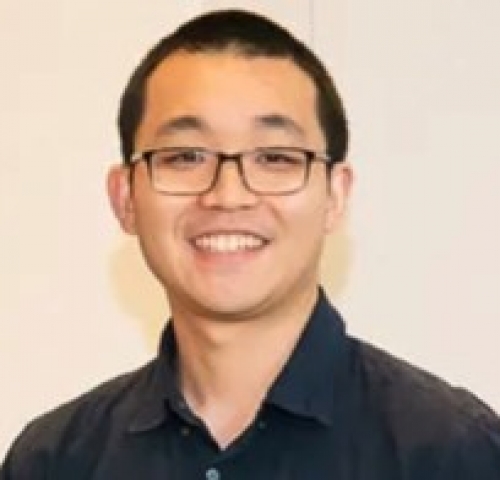
Xiao Guo
The University of Queensland
Xiao Guo obtained his Bachelor of Science in Physics from Northeastern University in 2017. He then went on to receive his Master’s in Electronic and Electrical Engineering from the University of Hong Kong in 2018 and his PhD in Electrical Engineering from the University of Queensland at the end of 2022. His research focuses on nanophotonics and non-destructive quantitative material characterization using near-field nanoimaging and nanospectroscopy.
His areas of expertise include scattering-type scanning near-field optical microscopy (s-SNOM) in terahertz (THz) regimes, nano-Fourier transform infrared spectroscopy (nano-FTIR), analytical/numerical simulations of charge carrier behaviour in semiconductors, and the extraction of quantitative material metrics at the nanoscale, such as complex permittivity or optical constants.
Can you give me a quick rundown about the type of mathematics you are studying and its potential impacts for the broader community?
My research studies involve understanding light-matter interactions, therefore allowing the quantification of material properties in practical problems. In simple words, I study what happens when light impinges on and reflects from an interrogated sample, which could be semiconductors with defects, cancerous and benign skin tissues, or other structures with questions to be answered. The essential math establishes the linkage between quantitatively meaningful metrics and general physics equations. Utilising math tools like optimisation theory, differential equations, and Bayesian statistics, I may retrieve metrics of samples telling: (1) how defective this semiconductor device is, or (2) what is the label-free difference between a lesion and a benign tissue, etc., before the appearance of a visual change.
How did you get into mathematics? Was there someone or something that inspired you into this field?
I initially started learning deep learning and relevant fancy tools back to 2017 during my master program, when I considered it was a hot bubble. I then realised the behind math is more solid and started to participate AMSI program in 2021 which was advertised in UQ and I had a bit free energy since my PhD.
You received a Travel Grant to attend AMSI Summer School 2023. How important was this in terms of your ability to attend, fully participate in the program and meet others studying in similar fields?
The Travel Grant enables me to fly to Melbourne to attend AMSI Summer School 2023. If I did not get this travel grant, I would not have sufficient money to pay 2-week accommodation and find an excuse to get approval to focus on summer school content from my advisors. It is a huge advantage to have in-person style of interaction in the first two weeks. I get to know a lot of friends and have fun together every night. Two Football games are fantastic bonus.
What was the most valuable part of the program for you?
I would personally consider the social interaction with people met in summer school is the most valuable part. Specifically, I found people who live in univ. college from non-Melbourne areas interact with each other much more. The course content is awesome as well, which inspires my following research topics.
In the long-term, what do you think are the benefits of having attended Summer School?
In the long-term, I consider the experience, that flying alone from Brisbane to Melbourne, interacting with an open-minded cohort, and spending time together to achieve some things, is memorable. The course content is awesome when I can learn something together with friends in summer school.
Summer School included a special Careers Day program which aims to help give students an idea of the kinds of career paths available to maths graduates in industry and private sector research areas. Were you previously aware of the types of industry opportunities available to mathematical science graduates?
I was never aware of these before. I am a PhD graduate in Engineering using mathematical tools and I suggest the Careers Day program could target some short-term internship to PhD students as well. I find my capability of working in industry during Careers Day program which I never thought of before. I feel more confident to explore career options outside of Academia.
What advice would you give to someone who is considering applying for Summer School in 2024? Should they apply and why?
Find one course which you are most interested in and apply for it! You will find you may like it or not, but you never know before you try it. In addition, studying with a cohort in summer school is never like studying alone.
Where do you want the mathematical sciences to take you? Where do you see yourself in five, ten years time?
Math is not a brain-torturing tool. I would like mathematical science to empower me to be confident enough to think about the world in an active and logical manner. I foresee myself as an independent researcher with problem-solving capabilities who can quantitatively describe and solve unprepared real-world problems without panic in five years. In ten years, my career role should transition to a manager position, where I am instead obliged to foresee the big picture and make strategic decisions based on my expertise and domain knowledge.
